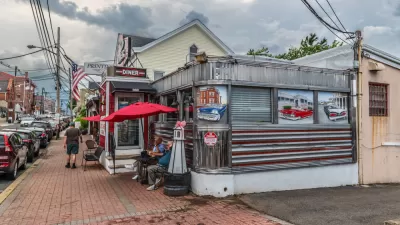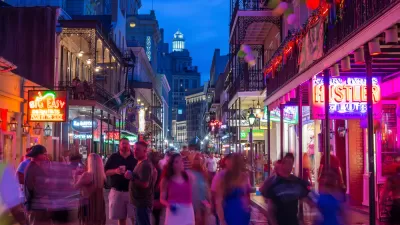Eric Fidler observes how residents of a Washington, D.C. neighborhood fight against the granting of a liquor license to a proposed restaurant, using the emotional health of school children as part of their argument.
Children in close proximity to alcohol could be cause for concern, but supporters argue that the proposed All Souls restaurant in a Washington, D.C. neighborhood should get the go-ahead anyway. The proprietor of All Souls had planned for the restaurant to serve alcohol in a location that was close to the Cleveland Elementary School, but these plans sparked a backlash from a group of protesters who believed that the school children would be negatively affected by observing the sale of alcohol.
After legal fees and discussions, the Alcoholic Beverage Control Board (ABC Board) granted All Souls the liquor license, citing a DC Code that lifts a restriction on alcohol sales within 400 feet of a school when another alcohol-vending institution is within that zone. The ABC Board further argued that not granting the license based on the idea that the sight of adult alcohol consumption would be harmful to children would require them to also ban children from being in any situation where alcohol was served, including religious ceremonies or family dinners.
As Eric Fidler points out, people will protest the grant of a new building whether the safety of children is at risk or not. He agreed with Georgetown resident Topher Matthews, who said that people will come up with reasons, such as historic preservation, to take down new construction plans. In the end, Fidler believes that the ABC Board made the right decision to grant All Souls its liquor license.
"For all the complaints about DC's regulatory bodies, the regulatory system worked rationally in this case. The board ratified the agreement with the neighbors willing to compromise. It rejected outright the protest of people who refused to believe the business should even exist."
FULL STORY: Schools and taverns can coexist

Planetizen Federal Action Tracker
A weekly monitor of how Trump’s orders and actions are impacting planners and planning in America.

Map: Where Senate Republicans Want to Sell Your Public Lands
For public land advocates, the Senate Republicans’ proposal to sell millions of acres of public land in the West is “the biggest fight of their careers.”

Restaurant Patios Were a Pandemic Win — Why Were They so Hard to Keep?
Social distancing requirements and changes in travel patterns prompted cities to pilot new uses for street and sidewalk space. Then it got complicated.

Platform Pilsner: Vancouver Transit Agency Releases... a Beer?
TransLink will receive a portion of every sale of the four-pack.

Toronto Weighs Cheaper Transit, Parking Hikes for Major Events
Special event rates would take effect during large festivals, sports games and concerts to ‘discourage driving, manage congestion and free up space for transit.”

Berlin to Consider Car-Free Zone Larger Than Manhattan
The area bound by the 22-mile Ringbahn would still allow 12 uses of a private automobile per year per person, and several other exemptions.
Urban Design for Planners 1: Software Tools
This six-course series explores essential urban design concepts using open source software and equips planners with the tools they need to participate fully in the urban design process.
Planning for Universal Design
Learn the tools for implementing Universal Design in planning regulations.
Heyer Gruel & Associates PA
JM Goldson LLC
Custer County Colorado
City of Camden Redevelopment Agency
City of Astoria
Transportation Research & Education Center (TREC) at Portland State University
Camden Redevelopment Agency
City of Claremont
Municipality of Princeton (NJ)





























